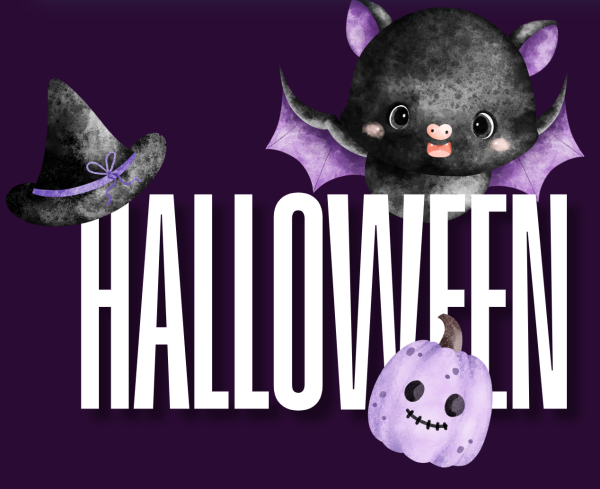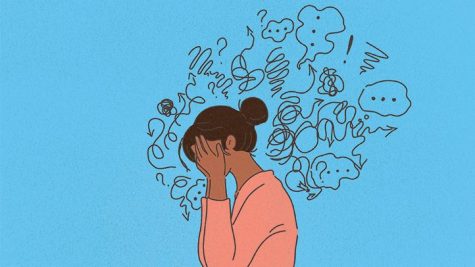It’s Time For People to Cancel “Cancel” Culture
It seems that every other week, there is a new trending topic on social media about a celebrity being “canceled.”
Although the “call-out” culture itself is not inherently new, the trend seemed to take off in 2016. The year saw an endless cycle of celebrity scandals, with many Twitter users dubbing the downfalls “parties,” reveling in the destruction of a figure’s reputation.
Examples include the infamous #KimExposedTaylorParty when reality star Kim Kardashian released private phone calls between her husband, controversial rapper Kanye West and singer Taylor Swift.
The tendency towards instantaneous rabid fury hasn’t changed at all: 2019 saw the literal burning of eyeshadow palettes created by beauty influencer James Charles following accusations of betrayal of a fellow YouTuber.
This culture is toxic for everyone involved. Public figures are not given the ability to explain or attempt to redeem themselves after they are “canceled.”
While there are examples of celebrities found accountable for heinous acts, many victims of cancellation were falsely accused or undeserving of such hatred.
The central theme with these incidents is unforgiveness. As soon as a celebrity makes anything that could be deemed a mistake, they are “canceled” and immediately blacklisted by fans. As Urban Dictionary defines it, cancel culture consists ”of people who are quick to judge and slow to question.”
Several celebrities have spoken out about the harm that social media has done to their mental health. Due to the impersonal nature of the internet, celebrities are bombarded continuously with unforgiving criticism.
Many celebrities, including singer Demi Lovato and rapper Cardi B, have deleted social media due to excessive criticism (many of them, of course, reactivated shortly after that).
“Saturday Night Live” comedian Pete Davidson, who openly struggles with Borderline Personality Disorder, spoke out about the comments he has received encouraging him to commit suicide, saying “No matter how hard the internet or anyone tries to make me kill myself, I won’t”
James Charles, whose makeup palettes were burned in response to his “cancellation” uploaded a response video in May 2019, explaining how painful the experience had been for him.
His mental health was especially impacted, as the video’s description is merely the numbers for the suicide and sexual assault hotlines (some of the accusations against Charles included claims of sexual harassment).
In his video response, he explained the backlash online as “the darkest time” he has ever gone through and that his thoughts reached a “scary place.”
In addition to mental health problems, physical safety risks emerge as a result of internet attacks.
Back in 2015, before the cancel culture was well-documented, the hashtag #CancelColbert was started by Suey Park, a social activist on Twitter. Park accused Stephen Colbert’s show, “The Colbert Report” of racism after a tweet that she deemed insensitive. The internet immediately went after Park, sending a bombardment of hate messages.
The situation escalated dramatically, soon threatening her safety, as Park was a victim of doxing and spotted a sniper outside of her home. This incident was detailed in the SyFy series “The Internet Ruined My Life.”
Cancel culture is a frightening reality without any signs of exhaustion. When situations escalate to the level of death threats, it is far past a matter of forgiveness. There is a need for basic respect.
There is nothing wrong with disagreeing with another user online, but the desire to ruin the lives of these individuals is cruel.
The mental health repercussions can be severe, as such hateful comments can easily contribute to feelings of anxiety and the onset of depression.
The craze of the “canceled” culture contributes to an immature mindset that does not allow for empathy or growth. Many public figures struggle with anxiety about being called out for their past or a future misstep.
Forgiveness is not an acceptance of the behavior but instead accepting that it has happened, and making a choice to move forward. It does not have to mean moving forward in that relationship.
Holding a grudge is not a benefit to anyone.
The Journal of American College of Cardiology found a direct connection between prolonged anger and hostility and the risk for heart disease and similar conditions.
Engaging in a positive mindset towards a situation is much better for your mental health. As celebrities on the receiving end of this level of criticism have found, it is incredibly damaging to the mental health and well-being of the “canceled.”
We need to allow for room to grow and evolve, without the threat of being completely cut-off due to a past mistake.
As the late actress Carrie Fisher said, “Resentment is like drinking poison and waiting for the other person to die.”
If you are struggling with mental health issues, do not hesitate to contact the following resources:
Fordham University Counseling and Psychological Services (RH): 718-817-3725
Suicide Prevention Lifeline: 1-800-273-8255
By: Kelly Christ
Columnist volume 101, Editorial Director and Opinion Editor volume 102















































































































































































































